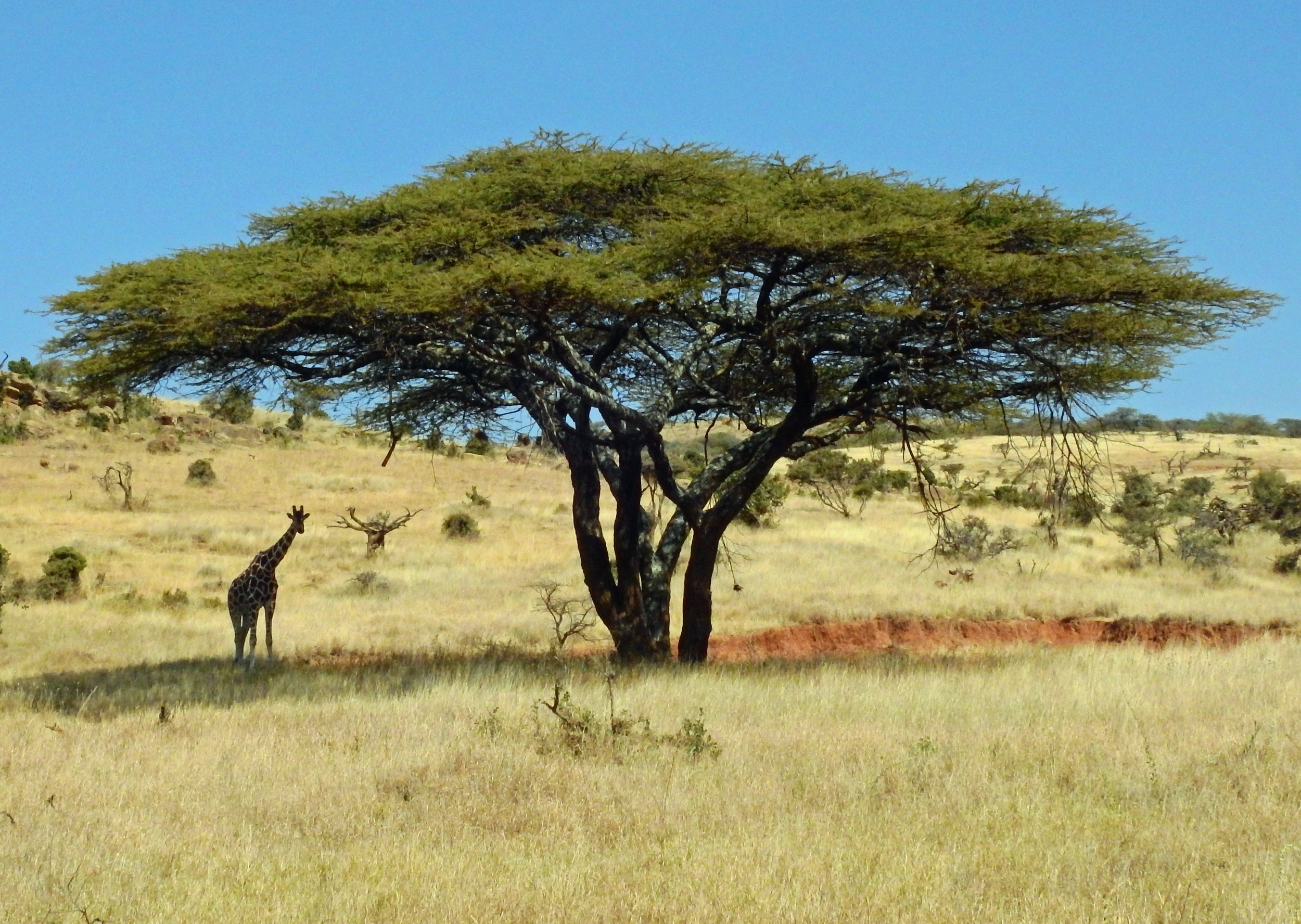
PLANTING TREES FOR THE NATIVE FUTURE, KENYA
planting trees for the native future, kenya
Providing alternative livelihoods and restoring Africa’s iconic acacia woodland in the Laikipia landscape will improve habitat resources for native wildlife, including black rhinos, giraffes, and elephants, attracting adventure travelers whose presence creates jobs, provide a market for local crafts and products and preserve cultural heritage. Planting native trees in a degraded landscape not only stores carbon in the living trees, but also increases soil carbon through the organic matter and vast root network which binds the soil, preventing erosion, and the loss of water and topsoil. Additionally an increased canopy reduces overall soil temperature and, particularly in dry areas, contributes to a cooler landscape.
THE ISSUE
The acacia woodlands in Ol Pejeta Conservancy, covering approximately 20% of the land, have experienced a steady decline due to high browsing pressure from growing populations of megaherbivores. Giraffes spend about 90% of their time browsing in the acacia habitat (Edwards 1998) and Birkett and Stevens-Wood (2005) attributed 40% of damage on Ol Pejeta’s Acacia drepanolobium to elephants. Overutilization of acacia degrades the trees and can increase tree mortality, which in turn reduces the natural seedbank, leading to low recruitment rates - exacerbating the loss of acacia habitat. Ol Pejeta is working on a pilot project to restore acacia woodlands by planting acacia trees in an herbivore exclusion zone (81ha) along the Ewaso Ng’iro river. The proposed project will build on the pilot project, with the goal to further increase the impacted area over time. This will address the seedling recruitment issue, and maintain a healthy food base for herbivores in the long-term, which will increase food resources for critically endangered browsers such as black rhinos and reticulated giraffes and prevent potential conflict animals such as elephants to venture into community areas in search of food.
THE GOAL
A successful step towards habitat restoration, communication of the benefits of tree planting to local schools, and generation of income opportunities and access to fruit for local farmers, that contributes to the long-term goal of a diverse, wildlife-thriving acacia landscape with positive coexistence between people and wildlife and a valuable transfer of propagation skills for community food security. he proposed project focuses on planting fruit trees in community areas – schools, vocational training centres, small scale farming families, etc., that can provide a source of food as well as revenue. Tree tomatoes and passion fruit trees are fast growing in the Laikipia climatic conditions and allow farmers to harvest fruits early and see benefits in the short-term. Both products are in increasing demand in the local markets. Both restored acacia woodlands and fruit trees will be important carbon sinks, storing carbon in the trees and soil, and providing an excellent educational experience for the local schools that can participate in the planting and growing of the trees, learn about climate change and the native flora and fauna, ultimately becoming future stewards of the land. Funding for the proposed project will be used to cover salaries for the proposed activities, acquire the necessary nursery equipment and seedlings (fruit trees and some of the acacia seedlings will be purchased from community tree nurseries), cover the expenses for the school visits and to develop a tourist promotional materials for a tree planting initiative that could help sustain restoration activities in the long-term.
donate today!
This project has already been awarded $7,000 by global businesses in the travel and outdoor industries! Help them achieve even more impact and get to $10,000 by the end of this year.
MORE ABOUT Wildlandscapes Inc
WildLandscapes Inc (WLI) is a Not for Profit 501(c)(3) who partners with effective, forward-thinking conservationists and organizations on the ground with a view to reconnecting wild landscapes for endangered, important species and empowering local people. WLI provides ecological advice and catalyzes efficacy through connecting conservationists with those who have the financial power to effect real change, and has a strong track record of securing U.S. Government funding for conservation. WLI has collaborated with conservancies in Laikipia like Ol Pejeta Conservancy (Ol Pejeta) since its formal inception in 2018 and is committed to the creation of a landscape-scale 225,000ha wildlife corridor.







